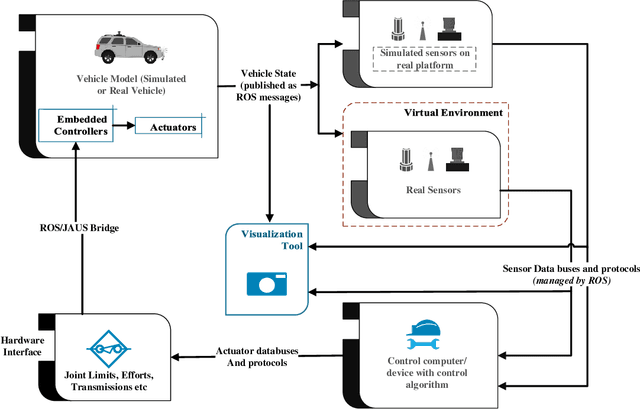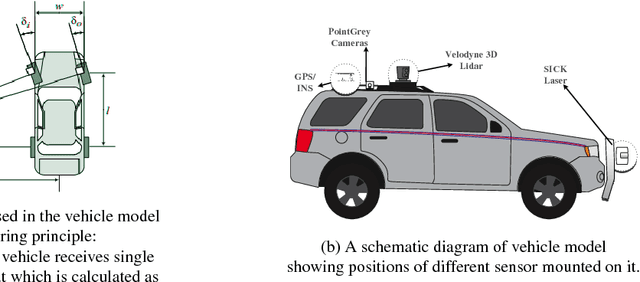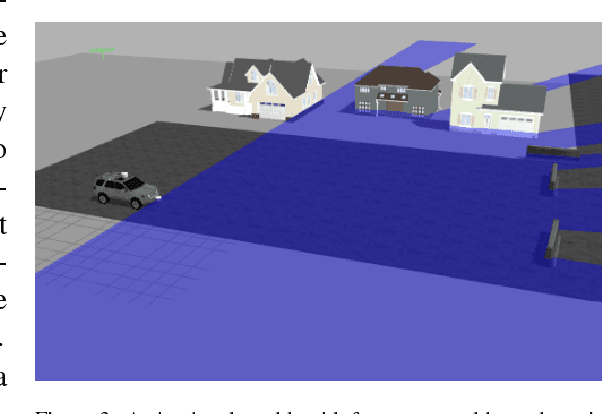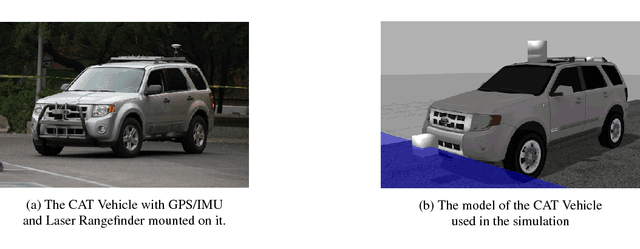The CAT Vehicle Testbed: A Simulator with Hardware in the Loop for Autonomous Vehicle Applications
Paper and Code
Apr 12, 2018



This paper presents the CAT Vehicle (Cognitive and Autonomous Test Vehicle) Testbed: a research testbed comprised of a distributed simulation-based autonomous vehicle, with straightforward transition to hardware in the loop testing and execution, to support research in autonomous driving technology. The evolution of autonomous driving technology from active safety features and advanced driving assistance systems to full sensor-guided autonomous driving requires testing of every possible scenario. However, researchers who want to demonstrate new results on a physical platform face difficult challenges, if they do not have access to a robotic platform in their own labs. Thus, there is a need for a research testbed where simulation-based results can be rapidly validated through hardware in the loop simulation, in order to test the software on board the physical platform. The CAT Vehicle Testbed offers such a testbed that can mimic dynamics of a real vehicle in simulation and then seamlessly transition to reproduction of use cases with hardware. The simulator utilizes the Robot Operating System (ROS) with a physics-based vehicle model, including simulated sensors and actuators with configurable parameters. The testbed allows multi-vehicle simulation to support vehicle to vehicle interaction. Our testbed also facilitates logging and capturing of the data in the real time that can be played back to examine particular scenarios or use cases, and for regression testing. As part of the demonstration of feasibility, we present a brief description of the CAT Vehicle Challenge, in which student researchers from all over the globe were able to reproduce their simulation results with fewer than 2 days of interfacing with the physical platform.
 Add to Chrome
Add to Chrome Add to Firefox
Add to Firefox Add to Edge
Add to Edge